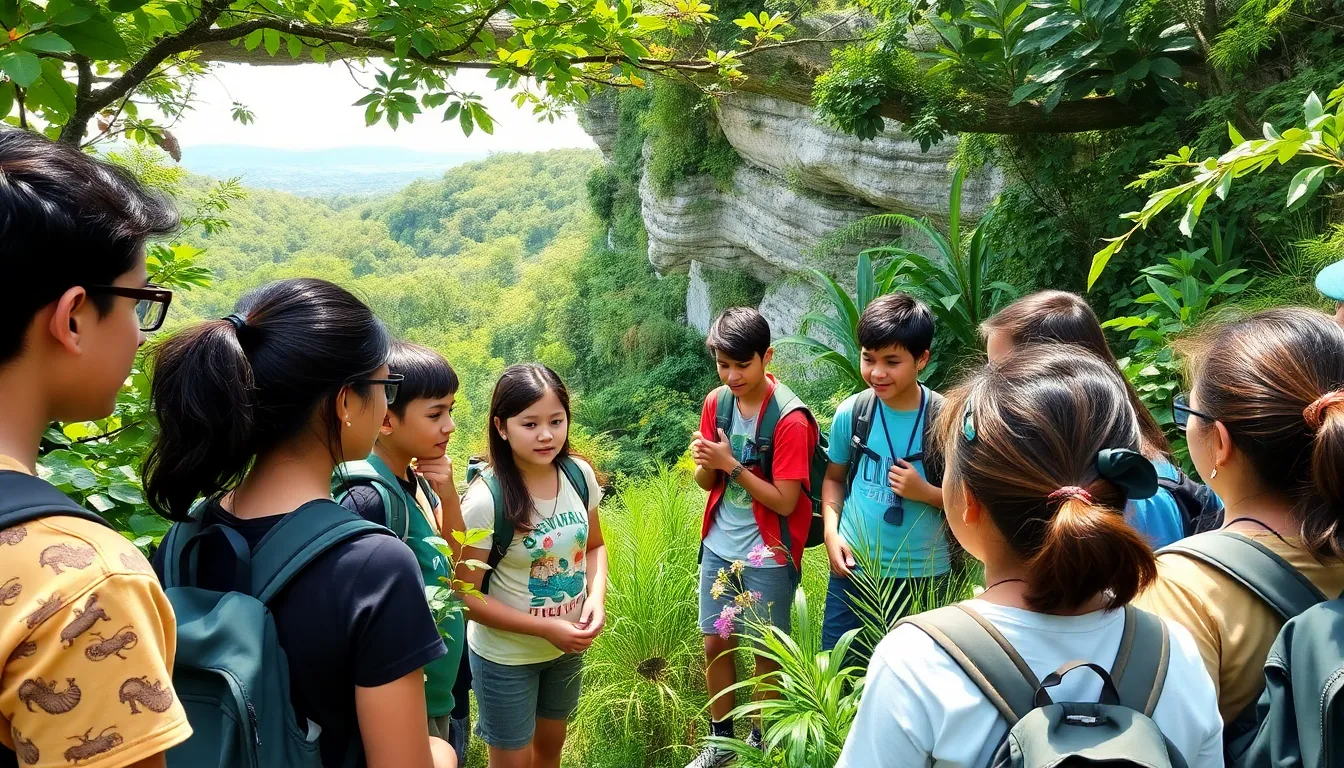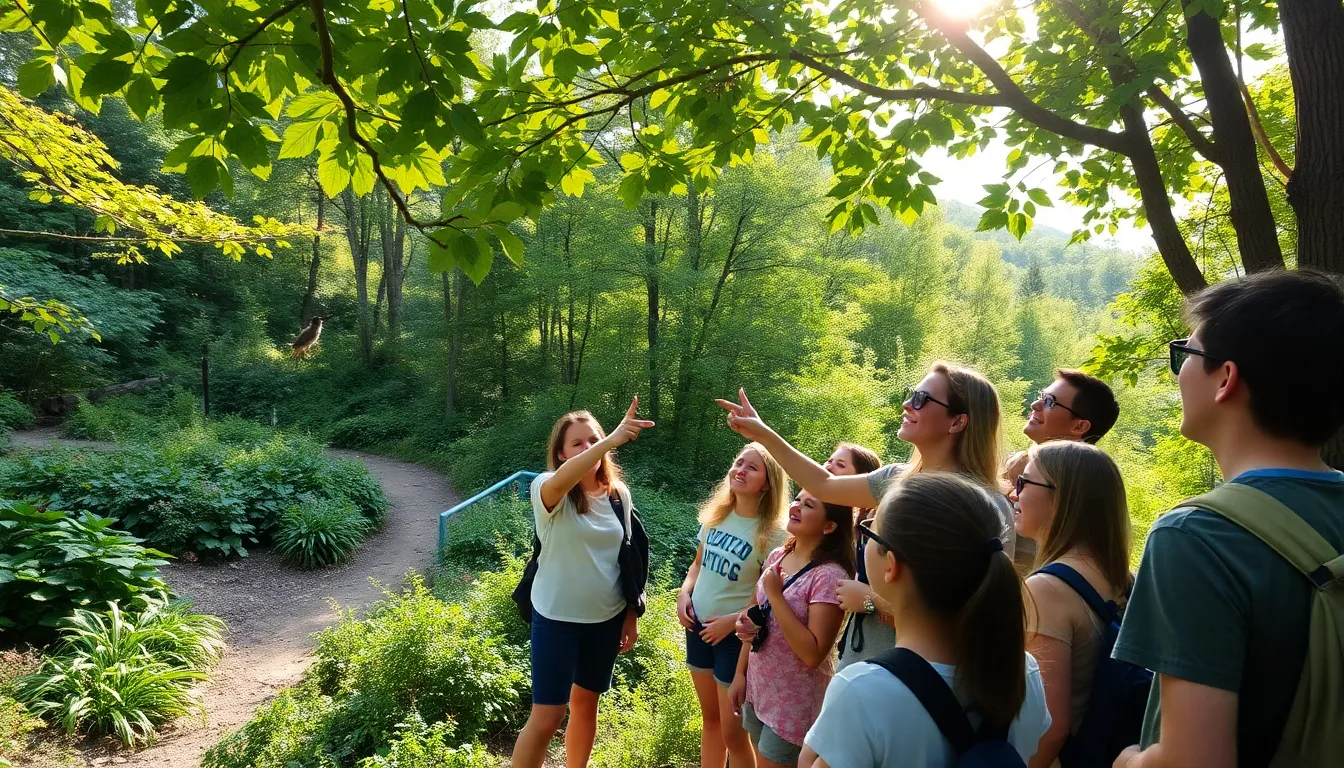At Kings Gap Environmental Education Center, nature isn’t just a backdrop—it’s the star of the show. This hidden gem in Pennsylvania offers stunning vistas and vibrant ecosystems that make even the most seasoned photographers weak in the knees. Whether it’s capturing the delicate dance of a butterfly or the majestic sweep of the Appalachian Mountains, these photos tell a story that words simply can’t.
But it’s not just about pretty pictures. Each snapshot serves as a reminder of the importance of environmental education and conservation. With every click of the camera, visitors engage with nature in a way that sparks curiosity and fosters a deeper appreciation for the planet. So grab your camera and get ready to explore a world where every frame is a lesson in beauty and sustainability.
Table of Contents
ToggleOverview of Kings Gap Environmental Education
Kings Gap Environmental Education Center serves as a hub for learning and exploring ecological principles. Located in Pennsylvania, this center features rich biodiversity, showcasing various habitats that intrigue both experts and casual visitors. Programs offered here include hands-on activities in nature, promoting environmental stewardship and awareness.
Participants engage in guided hikes, wildlife observation, and workshops that highlight the importance of ecosystems. Each experience emphasizes the significance of conservation and the impact of human activities on natural environments. Educators at Kings Gap utilize their expertise to create immersive educational opportunities, allowing individuals to connect with nature on a deeper level.
Photography plays a vital role in documenting the beauty found throughout the center. Captivating images serve as a gateway for others to appreciate ecosystems. Visitors often capture vibrant landscapes and diverse wildlife, helping spread awareness about the importance of protecting these natural treasures. Images taken at Kings Gap inspire others to visit and learn, fostering a community committed to preserving the environment.
In addition to photography, the center offers educational resources that promote sustainable practices. These resources include brochures, pamphlets, and digital content focused on local flora and fauna. Schools frequently collaborate with Kings Gap, integrating outdoor education into their curricula. Their students benefit from experiential learning that instills values of responsibility toward the planet.
Overall, Kings Gap Environmental Education Center stands as a testament to the power of nature and education. Its programs not only foster an appreciation for the environment but also encourage proactive measures for conservation. Visitors leave with a renewed sense of responsibility and admiration for the natural world.
Importance of Environmental Education

Environmental education fosters a deeper understanding of the world. It empowers individuals with knowledge about ecosystems, conservation efforts, and sustainable practices.
Benefits for Students
Students gain hands-on experience through immersive programs at Kings Gap. Engaging with nature enhances critical thinking skills and promotes curiosity. Direct involvement encourages an appreciation for biodiversity, inspiring students to become environmental stewards. Workshops and guided hikes enable learners to observe wildlife in its natural habitat. Exposure to ecological principles empowers students to tackle environmental challenges. Active participation in projects cultivates teamwork and communication skills among peers. Through these experiences, students develop a sense of responsibility toward preserving natural environments.
Community Impact
The impact of environmental education extends beyond individual students. Communities benefit from increased awareness of local ecosystems and conservation needs. Educational programs at Kings Gap encourage collaboration among residents, schools, and local organizations. These initiatives foster a culture of sustainability that touches all aspects of community life. As people engage in conservation efforts, local wildlife and habitats receive more protection. Programs also create opportunities for community members to volunteer, enhancing local engagement. The ripple effects of education can lead to improved public policies and community initiatives focused on environmental sustainability.
Capturing Nature Through Photography
Photography at Kings Gap Environmental Education Center showcases the beauty of nature and its ecosystems. Various techniques enhance the experience and connect photographers with the environment.
Techniques for Effective Environmental Photography
Utilizing natural light benefits photography, especially during golden hour, which occurs shortly after sunrise and before sunset. Composing images with the rule of thirds leads to more engaging visuals. Experimenting with different angles—high or low perspectives—offers unique views of subjects. Focusing on details like textures and colors reveals the intricacies of nature. Patience remains crucial, as many subjects, such as wildlife, require stillness for the perfect shot. Engaging with surroundings fosters an understanding of the ecosystem, enhancing the photographic experience.
Equipment Recommendations
Choosing the right equipment impacts photography success. A DSLR camera or mirrorless camera provides versatility in settings and image quality. Selecting a range of lenses—including macro, wide-angle, and telephoto—enables various perspectives. Tripods help stabilize shots, especially in low-light conditions. Filters, such as polarizing or neutral density, enhance colors and manage reflections. Carrying a weatherproof bag protects gear from unpredictable conditions. Lastly, a sturdy backpack facilitates easy transport, keeping equipment organized during outdoor adventures.
Showcasing Kings Gap Environmental Education Photos
Capturing the essence of nature through photography is a prominent feature at Kings Gap Environmental Education Center. Images taken here not only highlight the beauty of diverse ecosystems but also represent various educational initiatives.
Highlighting Key Projects and Programs
Photography plays a vital role in documenting key projects at Kings Gap. Students engage in hands-on programs that focus on ecology, conservation, and local wildlife. Workshops emphasize skills, allowing participants to learn about photography techniques while exploring habitats. Programs include guided hikes that enhance understanding of plant and animal interactions. Visitors capture moments that reflect the center’s dedication to environmental stewardship, contributing to ongoing conservation efforts.
Student Experiences and Contributions
Students actively partake in capturing their experiences at Kings Gap. Each photograph tells a story about their connection to the environment. Contributions from learners often highlight individual perspectives on biodiversity and conservation awareness. They share their insights during workshops, enhancing peer learning. Participation in photo projects encourages teamwork and showcases the importance of protecting natural habitats. Overall, student photography enriches the center’s mission and inspires others to appreciate and engage with the environment.
Kings Gap Environmental Education Center serves as a vital resource for fostering a love for nature and environmental stewardship. Through its immersive programs and stunning landscapes, it inspires individuals to appreciate the beauty of the natural world. Photography plays a crucial role in this experience, allowing visitors to capture moments that reflect the center’s ecological richness.
As people engage with their surroundings through the lens, they not only enhance their skills but also deepen their connection to the environment. This unique blend of education and artistry cultivates a community dedicated to conservation and sustainability. The impact of such experiences extends beyond personal growth, promoting a collective responsibility to protect the planet for future generations.


